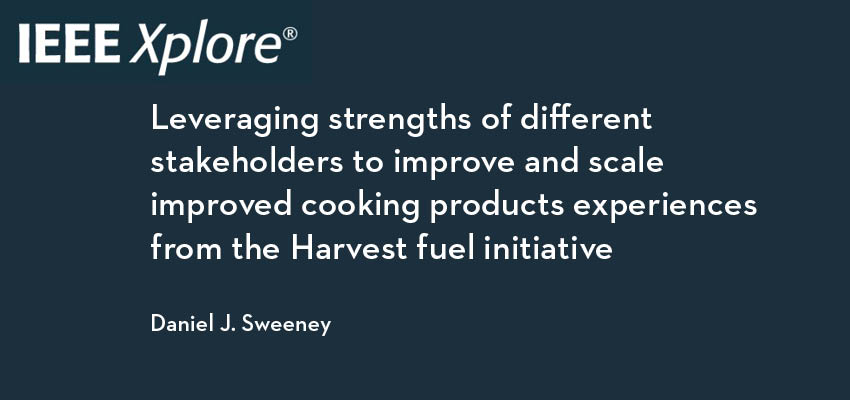
Published in: 2015 IEEE Global Humanitarian Technology Conference (GHTC)
Abstract
Despite significant efforts in the improved cooking sector over the past several decades, challenges have been encountered in developing high-performance products that both satisfy user preferences and are affordable. Among the reasons for these challenges are poor dissemination of R&D results to cooking technology enterprises, underutilization of the existing knowledge base by organizations working on the design of cooking technology, and lack of resources within enterprises to devote to product line improvement. This paper presents experiences from a pilot program, the Harvest Fuel Initiative, which partnered local clean cooking enterprises with technical, business and user-research expertise to evaluate and improve their product lines, achieve growth and economic sustainability, and understand the needs of their user markets. Specific examples include lab- and field-based product testing, implementation of quality control measures, and user-centered research studies. While these efforts directly benefited the partner enterprises, the innovation and lessons learned are of benefit to a wide range stakeholders working in technology for developing countries.
More information
MIT D-Lab Biomass Fuels and Cookstoves Research
Contact
Dan Sweeney, MIT D-Lab Research Scientist; Biomass Fuels and Cookstoves Lead

